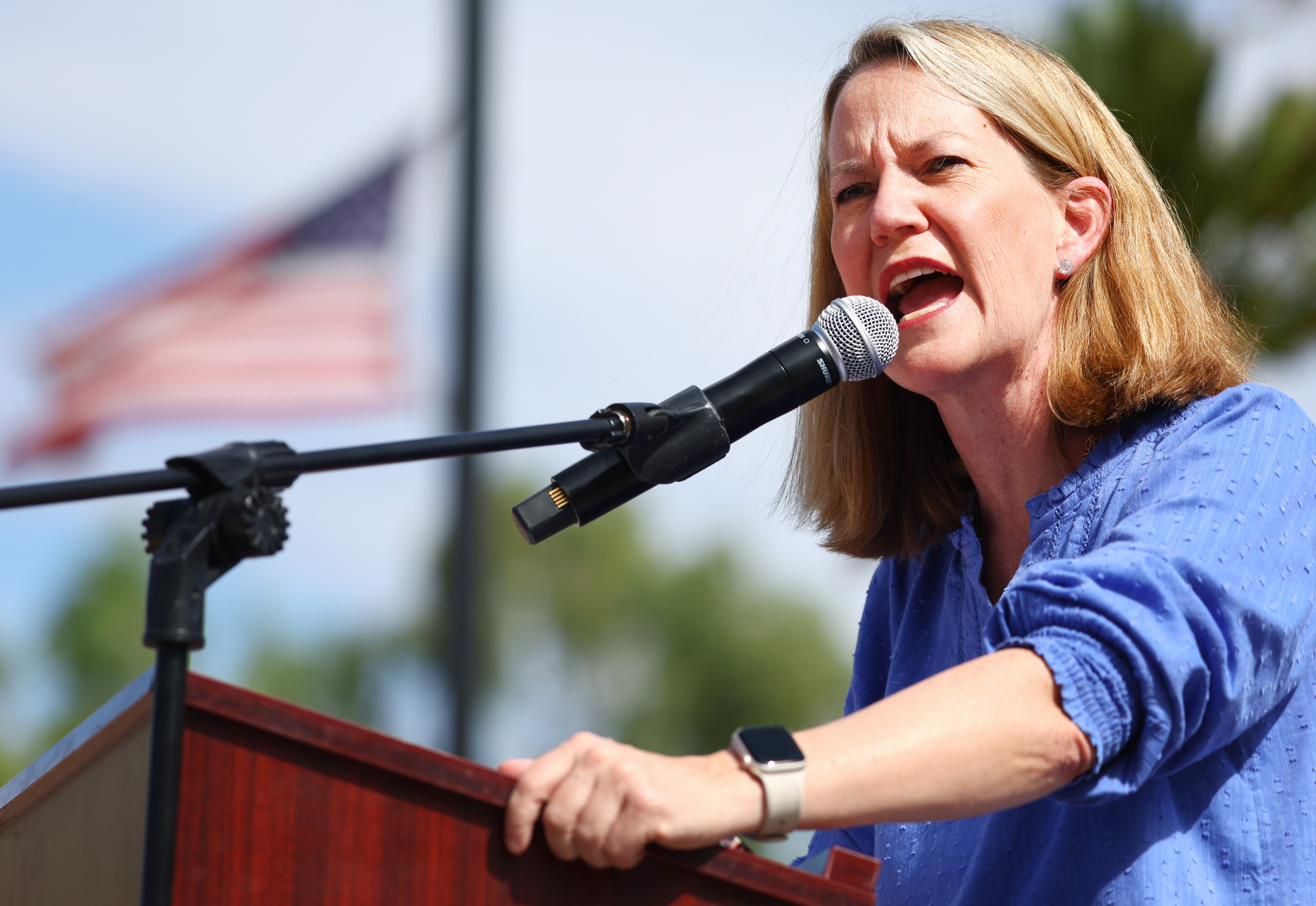Could the onset of the region's fire season help pass one of the biggest ballot measures in this election cycle?
The timing would seem to be perfect to put a fire protection tax measure before the voters -- at the onset of a fire season that's already issued burning reminders of the firestorms of 2003 and 2007.
But in the midst of an economic downturn, taxpayers may be especially tight-fisted.
Proposition A calls for raising upwards of $50 million a year over 30 years by way of a countywide parcel tax.
It would cost most property owners $52 a year, up to a cap of $1,000 for large parcel owners.
"You've seen recent examples of how enhanced air protection can save homes, save lives and property, and reduce economic loss to the region," San Miguel Fire Protection District Chief Augie Ghio said during a news conference Monday near Rancho Bernardo neighborhoods devastated by last October's wildfires. "Those assets don't come cheap."
Prop. A would establish a regional fire agency, to which half the tax revenues would go. The rest of the money would be allocated to local fire departments and fire districts.
Politics
Last week's brush fires at Camp Pendleton, driven by brisk Santa Ana winds, may have raised awareness about the need for better fire preparedness.
But by law, the measure requires a two-thirds majority to pass.
There's opposition from anti-tax activists and local agencies that are dissatisfied with the funding guidelines.
"Few taxes are more regressive than this tax," Richard Rider, chairman of San Diego Tax Fighters, told reporters after the Prop. A proponents concluded their presentation. "Fifty-two dollars (a year), whether you have a $100,000 condo in Southeast San Diego, or a 9,000-square foot home up in Rancho Santa Fe. It's astonishing, the lack of fairness in this measure.
Rider also denounced the measure's built-in, annual cost-of-living adjustment after the first year
"It's the politicians' perfect tax," he said. "Good times and bad, it goes up by the cost of living. So when property values are going down, this tax will continue to go up."
"If not now, when?" Ghio asked, rhetorically. "And if we don't do Prop. A now, we're going to miss a golden opportunity to give fire fighters the tools and support we need -- and they need."
San Diego County spends about 40 percent less, per capita, than Los Angeles County when it comes to fire protection, according to Steve Erie, a political science professor at UCSD.
"Equipment-wise, and in terms of the aerial battle, we're a little better off than we were last year," Erie said at a recent political symposium presented by UCSD faculty members at the community concourse. "But in terms of 'boots on the ground' -- fire personnel, we're in no better shape."
Looking back, on a scale of 1 to 10, local fire bosses say the region's fire preparedness rated a 1 to 2 before the 2003 firestorm; a 3 to 4 before last October's wildfires; and a 6 to 7 this year.
"We're moving in the right direction," San Diego Fire-Rescue Dept. Chief Tracy Jarman said in an interview. "But you want me to get to a 10? I need a whole lot more ground and aerial resources to feel that comfortable."
Homeowners who have seen wildfires 'up close and personal', without necessarily being burned out, may be more inclined to vote for the parcel tax than others who have seen the dangers, vicariously, on television.
"Fifty-dollars a year? That's nothing," says Lisa Warren, a Chula Vista homeowner. "That's McDonald's for a family of six. so I don't think that's a high price to pay."
Nonetheless, the economic downturn is being cited by Prop. A opponents as reason enough to reject a new tax.
"We're all paying too much in taxes," says Tony Krvaric, chairman of the Republican Party of San Diego County. "We're being asked to do more with less ... we have to look beyond just throwing money at a problem."



